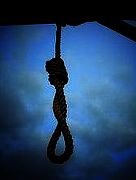They Were Not Allowed to Even Say Goodbye
» 101 Names of Secret Executions Uncovered in Vakilabad
In an exclusive interview with Rooz, human rights activist Asieh Amini who has been involved in gathering information about secret executions in Mashhad’s Vakilabad prison, announced, “Many executed prisoners (in Vakilabad) learned of their fate just a few hours before being executed and were not allowed to say goodbye to their family members.”
Just two months after the secretary of Iran’s human rights committee and the advisor to the head of the judiciary told reporters in New York that “No secret executions take place in Iran,” the International Campaign on Human Rights in Iran, including some Iranian human rights activists, published the details of the execution of 101 prisoners in secret in Vakilabad.
At the same time, Catherine Ashton, the representative of the EU for foreign affairs and security policy, expressed her deep concern about the growing number of executions in Iran and called for their suspension, including the sentence on Sakineh Ashtiani.
The average number of executions in Iran since the beginning of 2011 has been 2 per day, which places the Islamic republic of Iran as the country with the second highest number of executions in the world after China.
Mass Executions in Visitation Halls
This is the first time that the International Campaign on Human Rights in Iran is publishing the names of 101 victims of secret executions in the Vakilabad prison of Mashhad. It has requested the judiciary of the Islamic republic to immediately end secret executions and stop executions altogether.
The published list contains names of 101 individuals who are said to have been executed in the prison between June 19, 2010 and December 20, 2010. This list, which has been published along with a brief report, is the first document that presents the identities and details of many of those that have been secretly executed. The report categorizes the executions as “secret,” “massive,” and “unannounced,” adding that their trials took place without the presence of attorney’s or relatives of the victims, and that these relatives had not been informed of the executions for days that ranged from one to several after the event.
Ms. Amini believes that the actual number of secret executions exceeds the 101 number whose list has been published. She points to statements made by officials of Iran’s judiciary in the province of Khorasan and the remarks of some Friday prayer leaders in the province who she says have implicitly acknowledged in various ways the existence of secret executions.
Last October, Mohammad Bagher Bagheri, the deputy chief of the judiciary in South Khorasan province implicitly acknowledged the secret mass executions of drug criminals in a Birjand prison, the center of South Khorasan province and without mentioning similar executions in 2009 and the current year, said that 140 drug related criminals had been executed in 2010 in that prison. The Campaign said that none of the executions mentioned by Bagheri were ever announced in 2010.
While the Campaign has recorded 471 secret executions in Mashhad and other cities between January 2-11 until now, other sources point to a larger number of victims. Ms. Amini says, “From evidence gathered by witnesses and others gathered by our friends, we succeeded in collecting details on 101 victims. But we are certain that the total number of executions far exceeds this number.”
According to the Campaign, based on evidence gathered by local activists, the prisoners who were executed secretly in Vakilabad prison apparently did not know they were to be executed until the arrival of their hour of time. Officials told the victims to write their wills and take their last bath just before they were executed.
According to the report, authorities of Vakilabad hung the prisoners at about sunset in an open air hall that led to the visitation hall. In order to keep the hangings secret, officials turned off the telephone lines of the facility hours before the executions. Ms. Amini also said that even after the prisoners were informed that they would be executed, they were denied the right to inform their relatives of their fate. She said that the report that the Committee has prepared has been sent to various human rights organizations.
Shirin Ebadi, Iran’s Nobel Peace Prize winner commented on the report and asked why the Iranian government used this method of execution so eagerly. “Such a measure only creates terror and fear among the populace and has political utility while all evidence indicates that this method of punishment and its increase does not reduce the number of crimes related to drug trafficking.
The head of Iran’s judiciary Sadegh Amoli Larijani had said last December, “It is claimed that secret executions take place enmasse in Iran but I categorically announce this to be a complete lie. All death sentences are reported to the head of the judiciary. If they really have information that such secret executions take place somewhere, they should announce them so we can investigate.” Now that the list of 101 executions in Vakilabad has been published, the question is will the judiciary investigate.
Ms. Amini says it is not clear. “In the past, they used to say that some judges had unilaterally decided to stone sentenced prisoners. Today, it is not clear whether the authorities are not informed of such executions or that there is a cover up,” she said.
In his report, the special UN rapporteur on human rights in Iran wrote that the number of mass secret executions in Iranian prisons was “alarming” and adds that most of these executions take place without prior knowledge of family members or lawyers.


